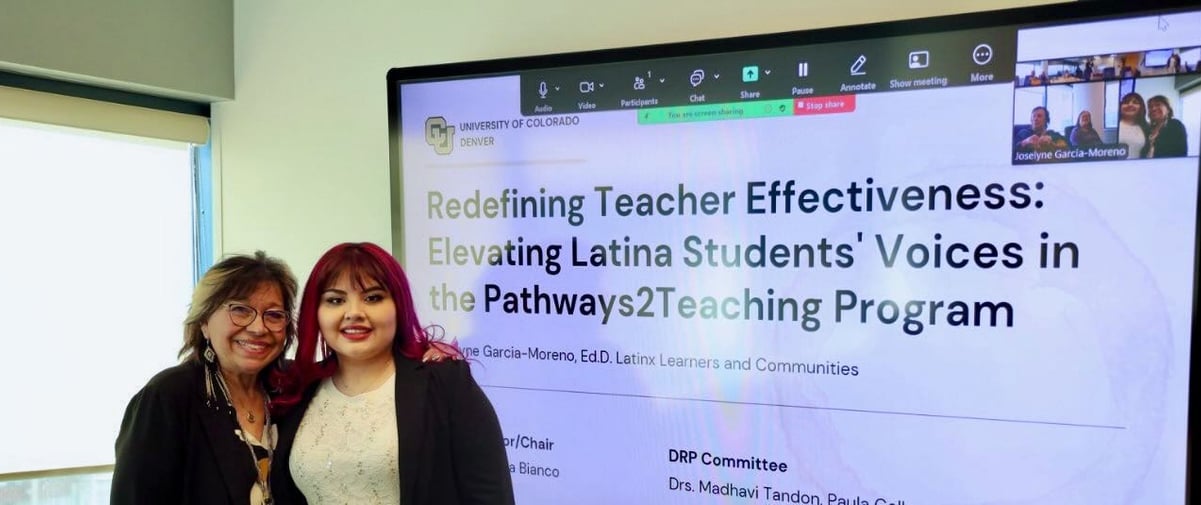OTHER AREAS OF SCHOLARSHIP
A. Overall Summary
While not captured in traditional academic metrics or my curriculum vitae, my Pathways2Teaching® work has created transformational impact for thousands of students of color across the country over the last 15 years. Many of these students have become teachers and paraprofessionals, bringing their lived experiences and cultural wealth directly into classrooms where they serve role models for the next generation of learners. Others have assumed leadership roles as diversity and equity coordinators in schools and universities, using their Pathways2Teaching foundation to advance systemic change from within educational institutions. Still others have become restorative justice coordinators, applying the program’s emphasis on community restoration to create more just disciplinary approaches. Several young men in our New Orleans programs, and more recently here in Denver, have received full ride scholarships through Call Me Mister programs and are on the road to increasing the Black male representation in the teacher workforce. This spring marked a particularly meaningful milestone as our very first Pathways2Teaching® student earned her doctorate, representing the full realization of the program’s vision to cultivate not just teachers, but educational leaders and scholars who will continue advancing equity and justice in their communities and beyond.
B. Grants and Contracts
The following grants and contracts have been primarily to support students and the Pathways2Teaching program.
Innovative Program Sustainability Model
Research on Grow Your Own (GYO) teacher preparation programs consistently demonstrates a fundamental sustainability challenge: most community-based programs operate only as long as their initial funding cycle, with many closing when grants end and renewal funding proves elusive (Gist, Bianco, & Lynn, 2018). This funding has limited the long-term impact of even the most promising GYO initiatives.
A Collaborative Sustainability Framework: Recognizing this systemic challenge, I developed an innovative collaborative funding model for Pathways2Teaching that fundamentally reimagines program sustainability. Rather than relying on traditional grant cycles, I created a stakeholder investment approach where all participants—school districts, higher education institutions, and community partners, contribute to the program's ongoing success and viability through shared ownership and investment. The success of this model has allowed the program to continue without major external funding sources for 15 years.
Fee-for-Service Contract Model: The cornerstone of this sustainability approach is our fee- for-service contract system with school districts nationwide. These contracts provide comprehensive support including:
Pathways2Teaching instructor training and certification
Student tuition support and program materials
Annual professional development for school-based staff
Ongoing technical assistance and program fidelity monitoring
Alumni Employment and Mentorship Innovation: A distinctive feature of our sustainability model is the systematic employment of program alumni as teaching assistants and peer mentors. After graduating high school and enrolling in undergraduate teacher preparation programs, our alumni return to mentor current high school students in the Pathways2Teaching program while gaining valuable classroom experience. They co-teach with high school instructors every two weeks, creating a continuous cycle of support, skill development, and program connection. With programs around the country, we have been able to hire back Pathways2Teaching graduates from Colorado, Louisiana, North Carolina, and Minnesota.
Financial Impact: This innovative approach has generated sustained annual revenue of $60,000-$100,000 through contracts with large and small school districts in urban and rural communities across the country. This consistent funding stream not only ensures program continuity but also provides employment opportunities for our college-enrolled alumni, supporting them financially while developing their teaching skills and maintaining their connection to the teaching profession – and to me.
National Model for Sustainability: This approach represents a paradigm shift from grant- dependent programming to self-sustaining, collaborative funding that addresses the field's most persistent challenge while creating a replicable model for other GYO initiatives nationwide.
Grants
Since joining the faculty in 2006, I have successfully secured 16 grants totaling $116,579 from diverse funding sources including, private foundations, university initiatives, and community partnerships. These funds provided additional support to hire Pathways2Teaching graduates to work with the program in a variety of roles.

